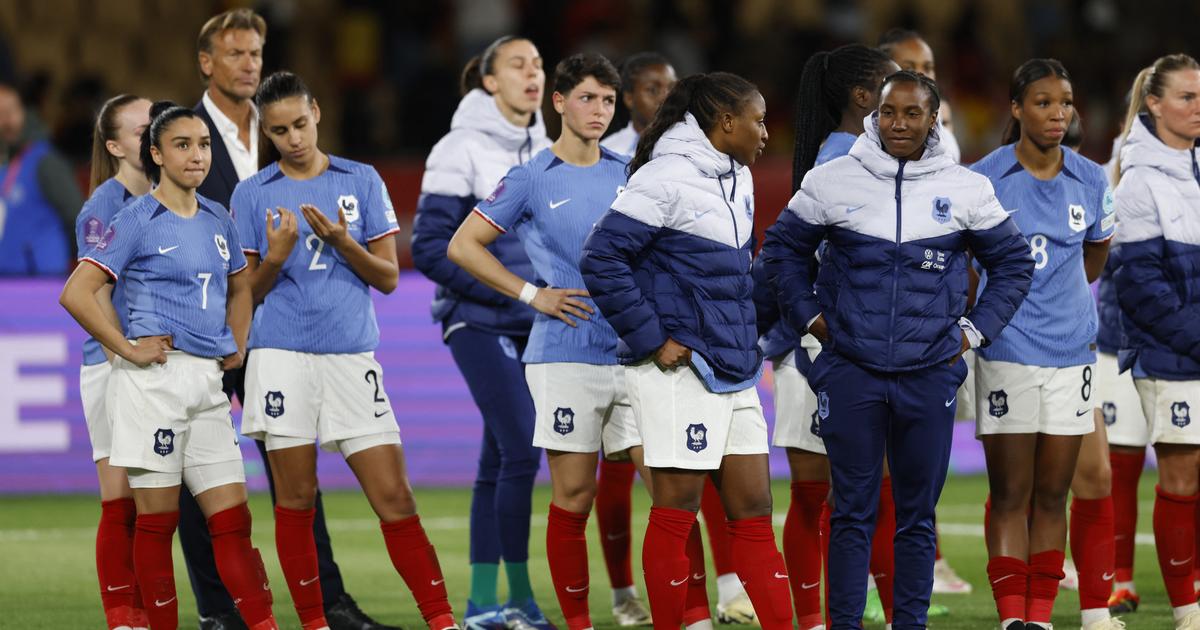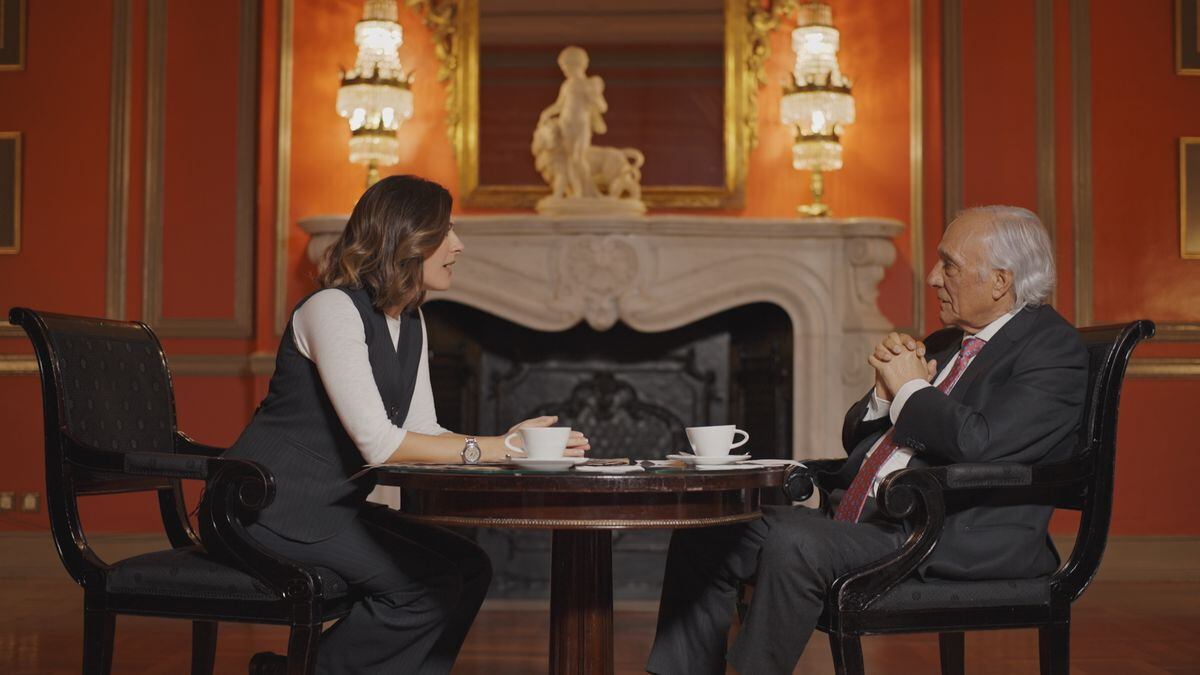The last message that Rubén Pozo received from his father was: "I love that song, it's very positive."
A few days later he passed away.
He suddenly came in with covid.
He was 74 years old and in good health.
But the virus took him away in a few days, without family farewells, without the warmth of his own.
Alone, in the ICU of a hospital, like so many other Spaniards in recent times.
The latest album by his son,
Vampiro,
is out now and is dedicated to him, the person who instilled in him a love of rock and roll thanks to the vinyl records of the Rolling Stones, Bod Dylan or Led Zeppelin.
The song that El Chepas heard, as Rubén affectionately called his father because he always carried a backpack on his shoulder, is called
Gente
and opens his fourth solo work.
It is a vindication of the condition of the human being, with all its defects on its back.
He goes like this: “Say 'I love you' whenever you want, say 'I'm sorry' if you feel like it.
/ Do not judge yourself harshly, the error is human.
/ It is what has to be people and not a robot”.
When El Chepas passed away,
Vampiro
was already in the manufacturing process: “My brother, who designed the album, and I wanted to surprise him for when he got out of the hospital.
He was sedated and we thought: 'When he wakes up and sees him, it's going to help him recover.'
We included a photo of him from when he was 46, the same age I am now.
It was a surprise.
But he didn't wake up.
He had no mercy on the virus.
All his life working and now he led a happy life, with his partner, his grandson... We saw each other more than ever.
He would come home, we would make a paella… Things in life.
It's been a shame, ”he explains with sparkling eyes.
And he adds: “I'm not a believer, but sometimes I find myself talking to him: 'I have an important concert, give me strength, send me a ray of energy, Chepas'.
Rubén Pozo has had to learn to stop being famous.
It was, and a lot, when he filled bullrings and pavilions with Sloth in a duo that he shared with his neighborhood friend, Leiva.
They worked at full speed during the 2000s and left it in 2012. Then the two started solo careers: Leiva took the public and Rubén claimed himself as an author.
“I have had to learn to value what I have and stop thinking about what I no longer have.
And I'm happy.
When I started my solo career I thought that few people had come to my concert, comparing it to Sloth.
But now I only think about the people who come, who are few but faithful, and how lucky I am to be able to dedicate myself to this and that enough people come to allow me to continue living from music”.
Vampiro
includes a song that speaks sincerely about this whole process.
In
After the Storm,
the author announces that he “owes three months rent”, that he “sold the boat at a loss” and that only “the remains of love” remain.
“I write about mine, about what happens to me.
In that song I talk about the mattress I took out with the Pereza tours I've spent.
I already used up that money… on things, on living.
I assume my life and the lurches I have given.
When the confinement came and I couldn't play, it was hard, because I need to act to live.
I also talk in the song that I'm very bad with my girl and we have financial problems.
And the landlady tells us that we owe three months rent and I tell her that I can't go out to work because there are no concerts.
And suddenly one day the oxygen balloon of my copyright arrives, which is like a little gift every six months, and I go ahead and fix myself up with my girl and write an optimistic song.
What do I know… is that it is so”.
This explanation, told in gushes with the harsh Madrid accent, portrays this sincere and direct musician.
The musician performing at the Berlin café in Madrid last May.
David Miravete
He tells it sitting on a terrace in Alameda de Osuna, a neighborhood in the northeast of Madrid near Barajas airport.
Rubén grew up here, playing and learning to play the guitar in the parks.
It's 12 in the morning and before ordering a glass of beer, he announces: "Damn, I'm going to give the impression that I'm a drunk, but I've been upstairs since seven in the morning."
He lives in Guadalajara (for rent) with his partner and six dogs and has gotten up early to take his son, Leo (15 years old), to the institute, located in Alameda de Osuna.
Right next door is the house of the child's mother.
Leo spends a week with each parent.
The two get along.
Even she, Clara Téllez, with a musical career at the head of Los Peces, sent him the other day a guitar and voice version of
Gente.
“It was very good, really.
She sings beautifully”, says Pozo.
He affirms that he has gone through a process to assimilate his minority status: now he plays in theaters for a few hundred.
“It came from a very big thing [Laziness].
Success poisons you.
And this world constantly asks you for success.
But success is not what they tell you it is.
It's what you have in your head.
For me it is to be giving this interview because it is already my fourth solo album”.
She would like to perform with her own band, but at the moment she does not have the resources.
In exchange, he has found the magic by going alone with the guitar.
Last year he was traveling in his own car;
now he already goes by train.
“I go like the
bluesmen,
by train.
They went up in gear and I paid the ticket.
But the rest is the same”, he tells with a lopsided smile.
In
Vampiro
Pozo he polishes acoustic pieces that are unlike anything else.
He has managed to create an identifiable style and every day he sings and writes with more personality.
They are songs that have many things with a great capacity for synthesis.
He sulks a bit
before facing this reflection: “People stay with the story: Leiva plays in pavilions and I in bars;
he is the good one and I must be a shit.
But that is said by those who have not seen me live.
Very special things happen at my concerts.
We are experiencing some incredible nights.
I have what I need.
When I release a record and no one comes to see me, that's when I'll have to worry…”.
With Leiva you continue to see.
They are friends.
She says that they broke up Sloth at the right time, right before they didn't fight "hands on".
“Everything that happened with Pereza was because of Leiva.
The successes are yours.
I was lucky to meet him.
I have experienced something that I would not have experienced myself.
Now I see him on TV perform at the Grammys or wherever and it's like I'm the mother of him: I'm nervous and tense, hoping that everything will work out”.
Leiva was one of the first to come to console him when his father passed away.
“What do you need?” he told her.
In that final song that his father heard,
Gente,
Rubén's son, Leo, plays the drums.
“He likes
heavy metal,
he plays it with complex double bass drums, so he found
Gente's sound very simple.
I let him know that this is a job and I paid him 100 euros for a day of sessions.
I think it's important for him to learn that it's a job.”
A good example of Reuben's law.















